
John Churchill was the publisher of The American Scholar and the secretary of Phi Beta Kappa from 2002 until last month. In the time we knew him, he always had several books going at once, so we wondered what titles he would first turn to after he left the building.
As I make the transition from running Phi Beta Kappa to savoring retirement, it strikes me that what’s “on the nightstand” is pretty similar to what I’ve read for the last 45 years: a mix of fiction, history, philosophy, and the unclassifiable. Here are 11 books either in progress or recently finished, in no order at all.
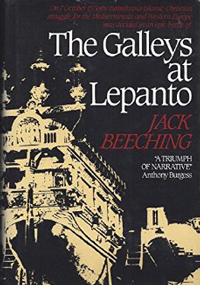
The Galleys at Lepanto, Jack Beeching. In 1571, the Spanish and the Venetians fought a battle involving hundreds of slave-oared galleys on each side, to prevent the Turks, with their North African corsair allies, from taking over the Mediterranean. The cast of characters includes Charles V, Philip II, Don John of Austria, the Knights of Malta, various viziers, and intriguing harems.
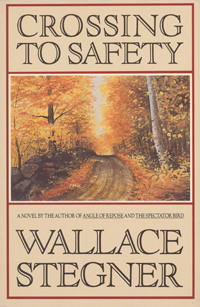
Crossing to Safety, Wallace Stegner. At the center of this beautifully crafted novel of academic life in the 1950s is the relationship between a professionally successful but socially awkward young professor and his colleague, in whom those valences are reversed. Fittingly for the season, it’s set on a New England summer lake (and sometimes in Wisconsin).
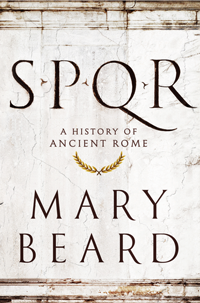
SPQR, Mary Beard. A much-reviewed history of Rome by a grande dame of British classical scholarship. The early going seems structured around pairs in conflict—Romulus and Remus, Cicero and Catiline—along with reflections on the historical truth of, for example, the rape of the Sabine women and its place in shaping the Roman paterfamilias.
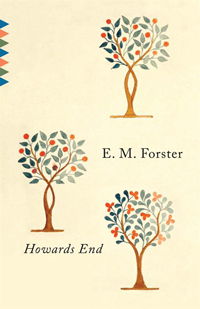
Howard’s End, E. M. Forster. A novel about England, Englishness, social class, imperialism, Germany, family, hay fever, and a modest little house where all these subjects intersect. Hard to keep Anthony Hopkins, Emma Thompson, and Helena Bonham Carter out of mind in reading.

The Civil War of 1812, Alan Taylor. Dense history written by an academic who doesn’t take the U.S./Canada border as something drawn by necessity. Fascinating reading for someone who often wondered why that arrow-shaped peninsula between Michigan and New York isn’t a U.S. state—it turns out the reason includes much military and political bungling.
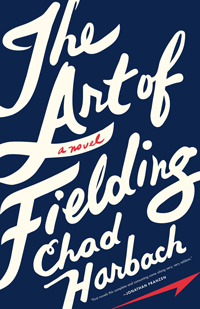
The Art of Fielding, Chad Harbach. A novel about a flawless young shortstop at Westish College in the Midwest, who develops the “yips” just as pro scouts begin to notice him—and whose life is further complicated by the fall of the college’s widower president for the shortstop’s roommate, an ambiguous young man.
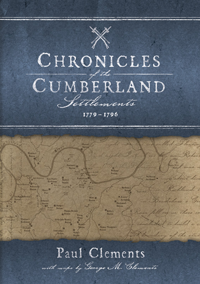
Chronicles of the Cumberland Settlements, 1779-1796, Paul Clements. This book is the answer to the question of why so many people in rural Middle Tennessee, where I now live, have such an affection for guns. Their ancestors—and mine—were settling a hunting ground claimed by Cherokee, Chickasaw, and Choctaw, on their own initiative. Their actions were the run-up to the Indian Removal Act, an episode that remains buried in our society like the various pieces of lead Andrew Jackson carried to his grave.

The Forest Unseen, David George Haskell. The Cumberland Plateau in the American South was logged in the early 1900s, but remote hollows escaped. In such a spot near Sewanee, Tennessee, a biologist chronicled the life in one square meter of forest floor over the course of a year. There are distinguishing tendencies and dissolving tendencies: the former sharpen and the latter relax the difference between one’s self and the rest of the world. This book is squarely the latter.
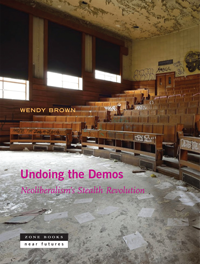
Undoing the Demos: Neoliberalism’s Stealth Revolution, Wendy Brown. Neoliberalism is the form of life and thought taken as “natural” in much of the West, where exclusively economic metrics are imposed as the sole criteria of value, measured by virtually unregulated markets. Brown argues that neoliberalism is driving out, as if by stealth, every other form of valuing and social organization.
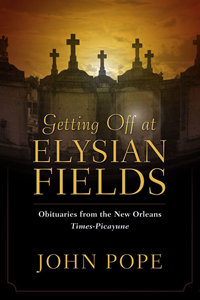
Getting Off at Elysian Fields, John Pope. Pope wrote obituaries for the New Orleans Times-Picayune for decades, and established himself as the chronicler in death of the Crescent City’s most arresting figures. This collection—to be sampled at leisure, not hurried through—shows that there’s no place like New Orleans, even in death.
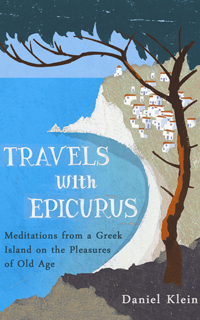
Travels with Epicurus, Daniel Klein. I found this book, the last one left unpacked, as I was leaving Washington for good. I was about to put it in the “give away” stack when I realized it chronicled the moment of life I was in: retirement. It’s a good translation of Epicurus into a modern idiom: “Get a grip and savor the passage of time.”


